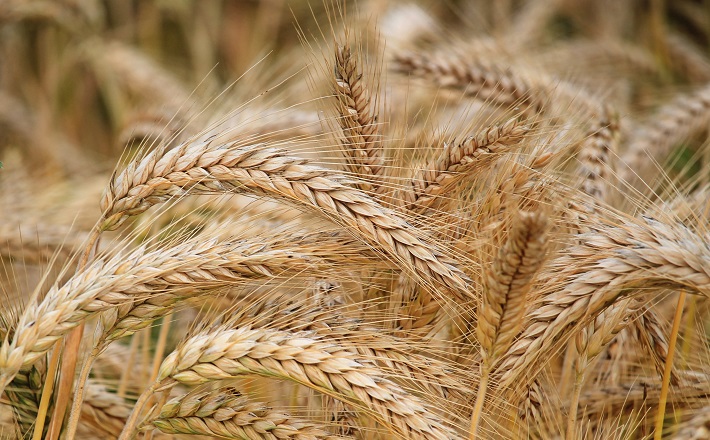Commentary on Psalm 81:1-10
Psalm 81 does not begin with a crisis but with a covenant memory, the memory of God’s faithfulness and a jubilant call to worship (verses 1-5).
And then, intruding into the middle of the fanfare of praise, the rude word of the prophet, speaking a jarring, discordant truth (verses 6-10), and God’s promise of faithfulness to those who call out to the God of salvation (verses 11-16).
What sort of psalm is this? Some call it a “liturgical sermon” while others will categorize it as a “prophetic psalm” — I would say it’s a both/and rather than an either/or. In the case of those who identify it as a liturgical sermon, they do so because the psalmic preacher situates the first part of the text, the sermonic introduction, in the cultic rites of Israel (verses 1-5). It serves as a familiar call to worship.
Alternatively, those who identify it as a prophetic psalm note the speaker’s plaintive tone, the psalmist’s recollection of God’s faithfulness through salvation history, and the warning of God’s judgment, characteristics found in the messages of the biblical prophets.
Perhaps neither category alone can do it complete justice — indeed, it’s the two together, the liturgical familiarity and the shock of prophetic truth-telling, that make this psalm what it is, namely, a reminder that our praise of God does not exist separate and apart from God’s compassion and justice for the poor, the needy, the oppressed, and the helpless.
Psalm 81 sits somewhere near the middle of Book III (Psalms 73-89) of the Book of Psalms. Historical events, namely, the Babylonian deportation and the destruction of the temple, form a backdrop for these prayers. However, as a rule, the Psalter does not occupy itself with specific historic events but instead the experience of those events.
According to Patrick D. Miller, the psalmist’s circumstantial ambiguity prevents us from “peering behind” the text but it also invites us to adapt the text to our own historical situation.1 As such, the cry of the psalmist is the cry of us all.
What sort of cry do we hear from Psalm 81? And could it be the cry for us all, even though we often ignore it? Perhaps it is a call to respond to the cries for justice and compassion in our own age, but especially, given its introduction, in our own houses of worship. This psalm is not addressed to those who are indifferent to God’s justice but to those who sing God’s praise.
And yet, apparently, this congregation does not hear or refuses to hear God’s voice.
According to J. Clinton McCann, Jr., Books I-III call out for a response from God’s people.2 Psalm 81 confirms this yearning: “I hear a voice I had not known” (verse 5c); “if you would but listen to me” (verse 8b); “my people did not listen to my voice” (verse 11); “O that my people would listen to me” (verse 13). Psalm 90 begins to answer the cry for response heard in Book III: “Lord, you have been our dwelling place in all generations” (verse 1).
Collectively, the psalmist gives us a worldview in which the whole creation sings God’s praise. Even so, this worldview exists within a context of opposition and suffering. McCann notes that in addition to the psalmist’s self-description as the righteous or the upright, the psalmist self-describes as the poor, the needy, the helpless, and the afflicted: “Not surprisingly … the dominant voice in the psalter is that of prayer.”3
Could it be that the North American church is tone deaf to the cry for justice? Is there any psalmic prayer in America’s praise songs of privilege?
Perhaps the truth-telling of Psalm 81 prevents our worship from turning into what Kraus calls “the intoxication of the cultic elements” 4— the intoxication of choirs, pianos, drums, harps, and trumpets, which can all but drown out the prayer of the dominant voice of the psalter, for example, the prayer of the poor, the humble, the needy, the helpless.
Rev. William Barber, leader of the recently revived Poor People’s Campaign, interprets scripture to those who claim the traditions of worship for themselves. He says there is no religious right or religious left, only the moral center of scripture, which insists that people of faith are on the side of the poor and the oppressed. And yet, seldom do we hear the prayers of the hurting and the persecuted in the praise songs of the privileged. How is that possible? Perhaps the prophetic voice is unwelcome under the “cover” of Sunday morning religion. According to Barber:
Slave master religion had a strange morality that somehow you could worship on Sunday and still have slaves on Monday. But as we would say today, those preachers were not practicing religion. They were practicing racism under the cover of religion. We still see some of that today.5
What if the partying of Sunday morning praise is deaf to the cry of the refugee? Is that the voice we hear speaking in a language that we, in our praise-privileged sanctuaries, do not understand, cannot comprehend or refuse, in the stubbornness of our hearts, to acknowledge?
On Sunday, our congregation sang, “Rejoice Ye Pure in Heart” — the choir processed in, our hearts rejoiced with praise, and perhaps for a moment, our hearts felt pure. But we live in Baltimore, a city with blood on its hands and in its streets. When we came to prayers, we heard the usual assortment of joys and concerns, thanks for healing, for good results, grieving for the loss of a loved one. But then there was this shockingly specific prayer … a raw complaint rising up amid our praise:
Please pray for those affected by the 152 mass shootings in the U.S. so far in 2018. Please pray not only for Jordan Deshields, 16, Arnold Patterson, 49, and Jawuan Pinkney, 1 (victims of gun violence in the previous week), but also for the 103 other gun homicides in Baltimore this year, for all those left behind to mourn, for all those who were shot and survived, and for those working to make peace in our world.
O Lord, in your mercy.
Hear our prayer.
Notes:
- Patrick D. Miller, Jr., Interpreting the Psalms (Philadelphia: Fortress, 1986), 8 quoted by J. Clinton McCann, Jr., “The Book of Psalms” in New Interpreter’s Bible, vol. 4 (Nashville: Abingdon Press, 1996), 646.
- McCann, Jr., 660.
- McCann, Jr., 669
- Hans-Joachim Kraus, “Psalms 60-150” in A Continental Commentary, Harold C. Oswald, trans. (Minneapolis: Fortress Press, 1993), 152.
- Lauren Gambino, “‘Jesus Never Charged a Leper a Co-Pay’ — The Rise of the Religious Left” in The Guardian (21 May 2018), accessed on May 22, 2018 at https://www.theguardian.com/us-news/2018/may/21/christian-religious-left-william-barber-poor-peoples-campaign


June 3, 2018